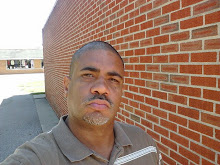Lorraine Hansberry's Gay Politics

We must know of the ancestors on whose shoulders we stand.
Lorraine Hansberry's Gay Politics
Why the 'Raisin in the Sun' playwright's homosexual ties have been straight-washed from black history.
By: Kai Wright | Posted: March 11, 2009 at 12:01 PM
The thing about history is that you don't get answers to questions you don't ask. Sally Hemings was a forgotten slave until Annette Gordon-Reed came along. Black soldiers from the Revolutionary War forward were said to play no meaningful role until black scholars ferreted out the facts. And Lorraine Hansberry had nothing to do with the lesbian liberation movement until 1976, when an editor revealed the playwright's surprisingly radical correspondence on the subject.
Black gays and lesbians have been erased from our community's history with surprising thoroughness. March on Washington planner Bayard Rustin labored away on behalf of the greater good for decades while having his own humanity shunted by fellow movement leaders. Duke Ellington's genius writing partner Billy Strayhorn's contributions have been profoundly obscured. And many of the artists who peopled the Harlem Renaissance have had their queer lives entirely straight-washed.
It's a terribly consequential trend because it has left too many black people, straight and gay alike, to believe that sexual shame and silence is a long-standing norm in our community. The opposite is true, and Hansberry is a wonderful example.
Hansberry was a child of the civil rights movement—her parents fought and won a long legal battle against housing segregation in Chicago, which inspired her story for A Raisin in the Sun. Later, as a young woman, she abandoned her studies at the University of Wisconsin and moved to New York City in 1950, where she took up work on Paul Robeson's political journal Freedom.
It was during this activism that she met her husband, Robert Nemiroff. The two were together romantically only briefly, but their relationship remained close—they didn't divorce until the end of her life—and, for decades, historians viewed Hansberry's personal life through that lens. But throughout her short life—Hansberry died of cancer at 34—she engaged both a personal and a political search for sexual freedom and articulated a still-urgent understanding of its relationship to gender equality.
It's unclear whether Hansberry would have called herself a "lesbian," primarily because she and others were still in the process of developing the concept of such a clearly defined sexual identity. But she dated women and, more strikingly, joined the country's first-ever lesbian political organization, the now-defunct Daughters of Bilitis, at a time when doing so made you a target of federal law enforcement.
After joining the group, Hansberry wrote a series of provocative letters to two gay journals. Daughters of Bilitis began publishing its journal, the Ladder, in 1956. Hansberry chimed in to it in May and August of 1957, while she was writing A Raisin in the Sun. Hansberry is known for her drama, but she was a prolific political writer and speaker, dating back to her early 1950s activism and editorial work for Robeson. And in her essay-length 1957 letters to the editor, she challenged members to consider the feminist case against homophobia.
"I think it is about time that equipped women began to take on some of the ethical questions which a male-dominated culture has produced," Hansberry wrote in one letter, explaining, "There may be women to emerge who will be able to formulate a new and possible concept that homosexual persecution and condemnation has at its roots not only social ignorance, but a philosophically active anti-feminist dogma."
She believed, in other words, that people fear queers because they challenge comfortingly rigid gender norms. It's the sort of radical political analysis for which scholars like black lesbian author Barbara Smith argue Hansberry is rarely credited. Hansberry signed the letters with her initials, as was the journal's convention. Ladder editor Barbara Grier revealed Hansberry as the author, though the fact remains largely ignored outside of academic circles.
Hansberry further elaborated on the point in an unpublished 1961 letter to another gay periodical, ONE magazine. "I have suspected for a good time that the homosexual in America would ultimately pay a price for the intellectual impoverishment of women," she wrote, later adding, "Men continue to misinterpret the second-rate status of women as implying a privileged status for themselves; heterosexuals think the same way about homosexuals; gentiles about Jews; whites about blacks; haves about have-nots."
These ideas were way ahead of their time. Hansberry's evolving politics were groundbreaking, and many questions remain about how they impacted her work—both plays she wrote after Raisin included gay characters—and how her ideas impacted the budding movement for sexual freedom she joined in the 1950s. In ignoring these questions, we've limited our understanding of Hansberry, and we're all poorer for it.


0 Comments:
Post a Comment
Subscribe to Post Comments [Atom]
<< Home